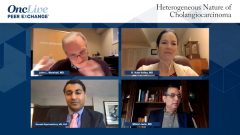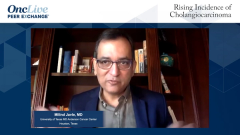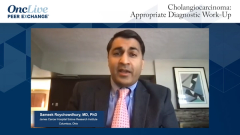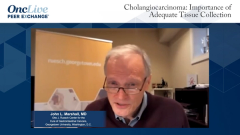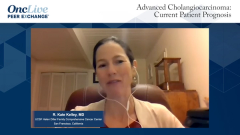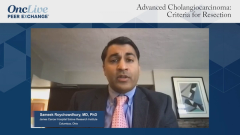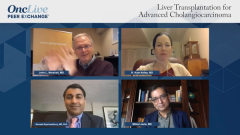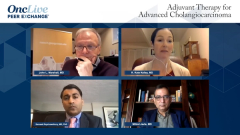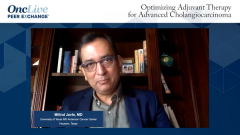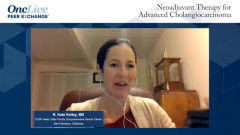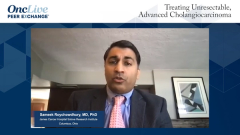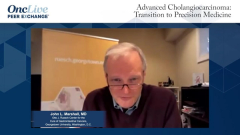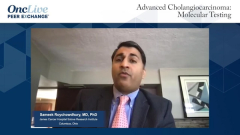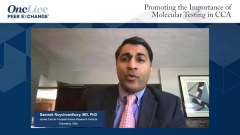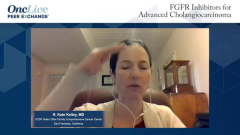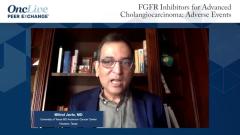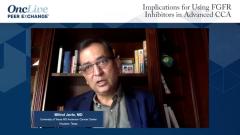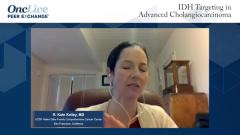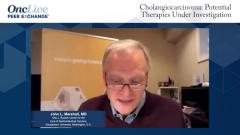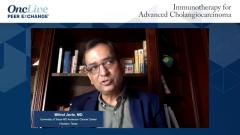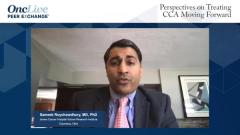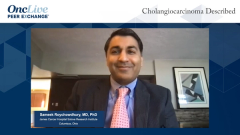
Cholangiocarcinoma: Importance of Adequate Tissue Collection
Best practices for working with other colleagues to ensure adequate tissue collection occurs when conducting a biopsy on a patient suspected of having cholangiocarcinoma, as well as considerations for next-generation sequencing.
Episodes in this series

John L. Marshall, MD: We’ll talk later about curing these patients and surgery, adjuvant chemotherapy, etc. In that patient where it doesn’t look possible due to metastatic spread and we’re getting tissue, I would love your thoughts on how you specifically communicate with your IR [interventional radiology] groups about tissue acquisition when you know you’re going to want molecular profiling on a patient. With intrahepatic cholangiocarcinoma, usually the amount of tissue is not the problem; there’s plenty there, but it requires special advice with IR. Milind, what do you do when you want that kind of biopsy?
Milind Javle, MD: John, I feel strongly about this because we often have patients referred to us who have an inadequate tissue diagnosis. There’s reluctance, more on the part of physicians than the patients sometimes, about getting another biopsy. We have to realize that to get a biopsy and get adequate NGS [next-generation sequencing] requires a good amount of core biopsies—generally 10 unstained slides and 1 actual slide. I’ve learned with experience that the amount of tumor tissue in the liver has to be more than the amount of tissue required in extrahepatic sites. The hepatocytes have a lot of DNA by themselves, so when you get a core biopsy from the liver, it has to be an even larger core or more than 1 core. That way, you have more than 40% tumor contact to get adequate NGS. With extrahepatic tissue, sometimes you are worried you may not get enough of a sample in the lung; even 30% is inadequate.
With extrahepatic or hilar cholangiocarcinoma, it’s a greater challenge. I agree with the points that Sameek made. We don’t have enough tissue. Frankly, our tools for diagnosis are imperfect in that setting at this time.
John L. Marshall, MD: Do you have to take your IR person out to lunch or give them a cup of coffee? How do you make sure? Do you put it in the order? How do you deal with that?
Milind Javle, MD: Well, IR generally loves [cholangiocarcinoma cases] because we give them a lot of business there.
John L. Marshall, MD: They send us the fruit basket at Christmas, right?
R. Kate Kelley, MD: It’s critical to have advanced endoscopy colleagues, ERCP [endoscopic retrograde cholangiopancreatography] specialists, who have the tools to do the intraductal biopsies and not just brushings. If you have a patient with cholangiocarcinoma, you may want to send them to a center that has advanced endoscopy, not someone who doesn’t do ERCPs very often.
John L. Marshall, MD: Yes, we are spoiled, aren’t we? We have incredible teams around us that are remarkably skilled at these kinds of things, and not everybody has access to that. Adequate tissue is important for not just next-generation sequencing, IHC [immunohistochemistry], molecular profiling, etc. With the role of liquid biopsies, we did a nice job of covering how that can be supportive and supplemental; it may be useful over continuity but may even play a role in the diagnosis.
Transcript Edited for Clarity


